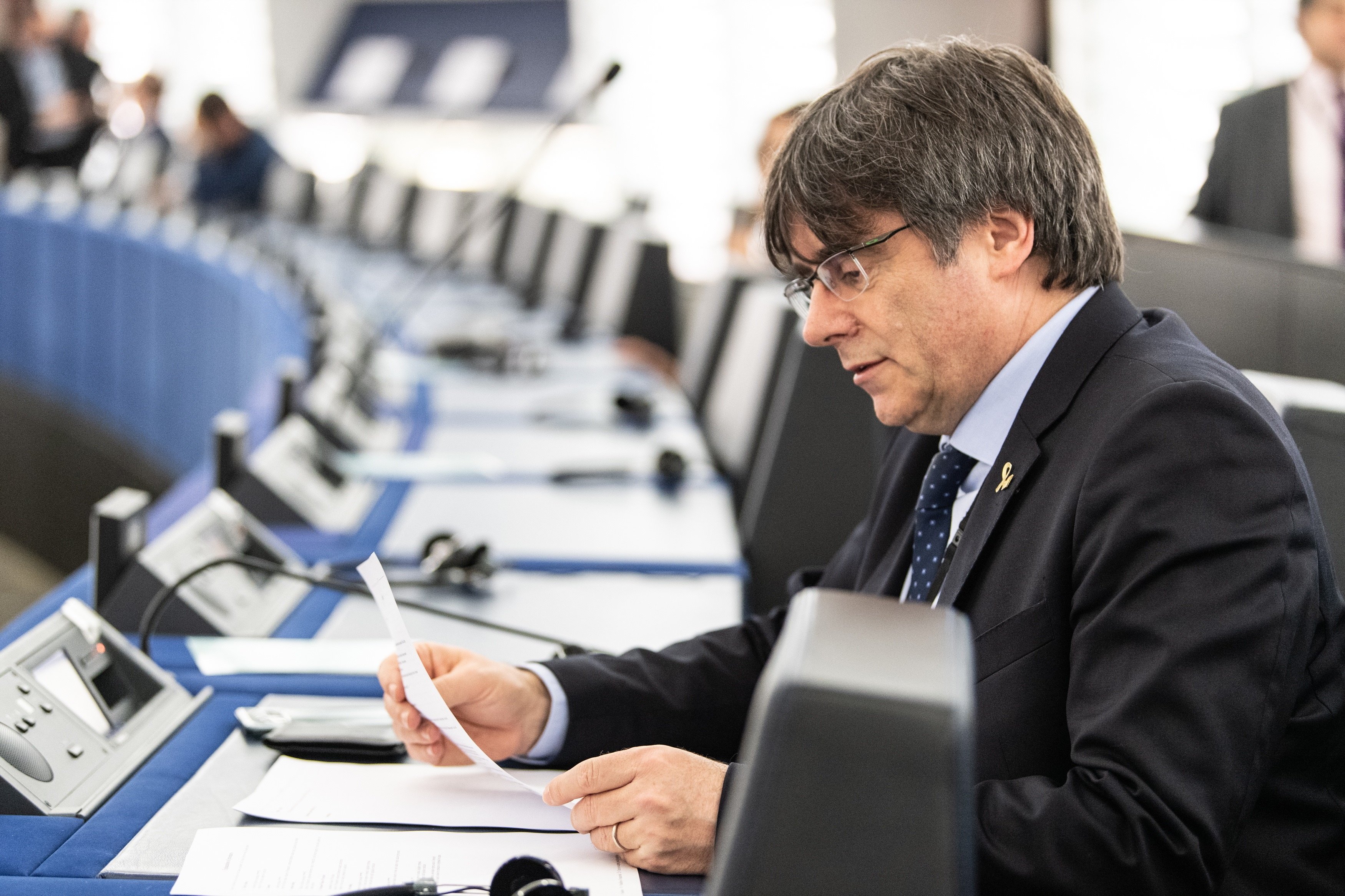Catalan president in exile, Carles Puigdemont, admitted they are not satisfied with the conclusions made public today by the ECJ's Advocate General, who supports the arguments made by the Spanish investigating judge, Pablo Llarena, in the dispute with Belgium for the refusal to execute the European arrest warrant (EAW) against Catalan minister Lluís Puig. Puigdemont warns that in the Advocate General's conclusions "clear contradictions" with the most recent case law of the ECJ itself were detected, and was confident that the court will resolve it. In any case, he assured they have foreseen all possible scenarios and that they will fight "until the end", without surrendering or giving up. "We know what we have to do in each of the scenarios. From the most favourable to the most unfavourable one", he assured.
The Advocate General concluded in the report made public today, in relation to the preliminary questions of judge Llarena, that the Belgian Judiciary should not rule on whether the Spanish Supreme Court is competent to judge Puig, and that to wield the argument of risk of violation of a fundamental right, as it has done in its refusal to execute the EAW, it would have to demonstrate systemic and generalized deficiencies in the functioning of the Spanish Judiciary.
In a thread of tweets, Carles Puigdemont, despite admitting they would have preferred a more favourable report from the Advocate General, assures the exiles' defence had identified all possible scenarios and that they will know how to respond to each of them, from the most favourable to the most unfavourable.
He stressed that now the exiled politicians already know what they have to do and what attitudes they have to take if "the worst case scenario" arrives, which it has not yet done so. "Let no one have any doubt: today more than ever we join forces under the 'no surrender' sentiment, with which we have fought all these years" he reiterated.
In fact, the Catalan president in exile admits this was not the answer they expected, and it has not satisfied them, but warns that given the contradictions they detect in the Advocate General's text in relation to the Court of Luxembourg's case law, they will wait for the ECJ's final decision.
Puigdemont stressed the ECJ will resolve the contradictions they detected in the Advocate General's conclusions, and insisted that in any case, they will have to go down a path they already know "more experienced than before".

